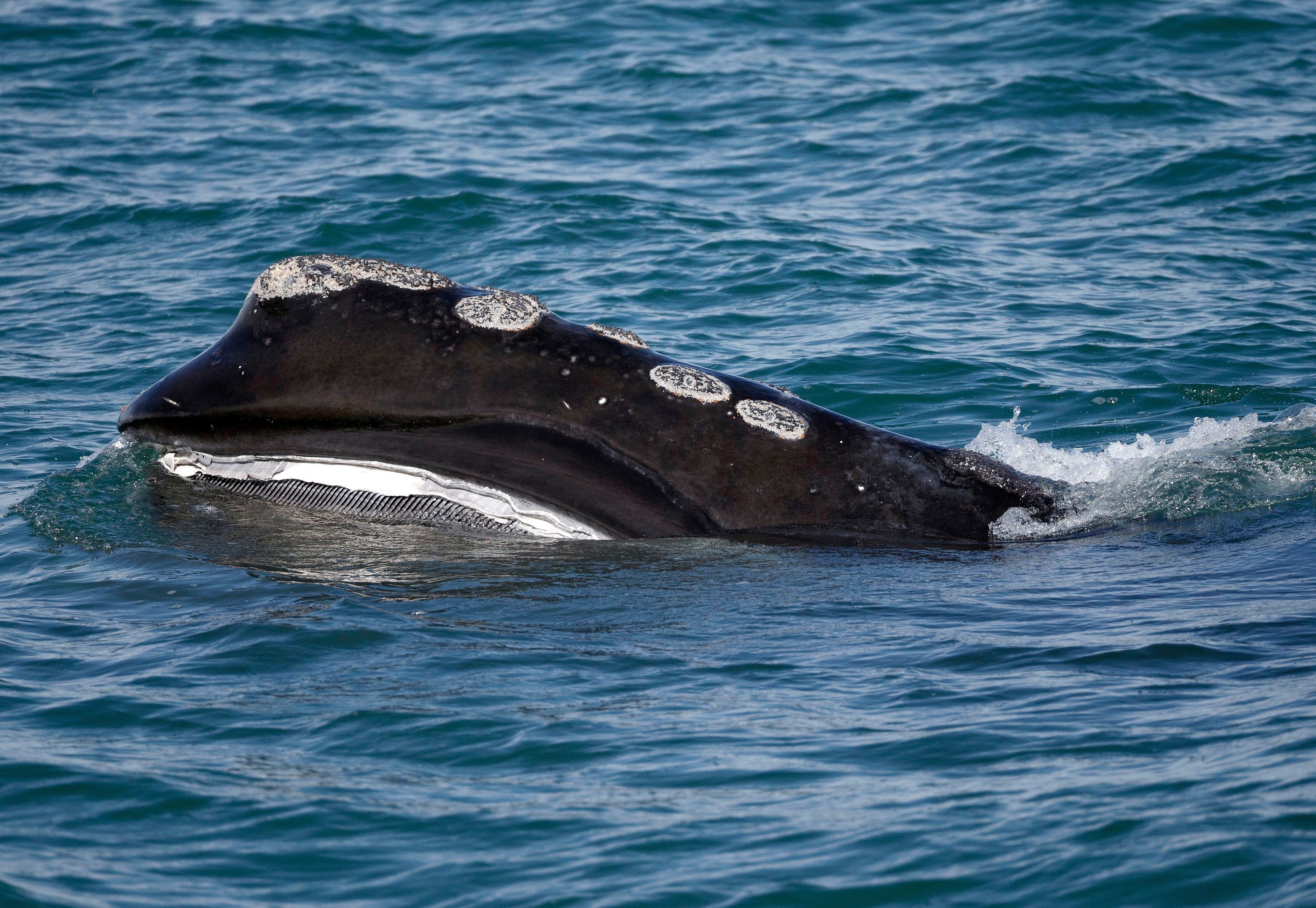Federal court sides with lobster fishers in whale protection case anchored off New England
A federal appeals court has blocked proposed restrictions aimed at saving a vanishing species of whale, saying they could put thousands of commercial fishermen out of work

A federal appeals court has sided with commercial fishermen who say proposed restrictions aimed at saving a vanishing species of whale could put them out of business.
The fishermen harvest lobsters and crabs off New England and oppose tough new restrictions on the way they fish that are intended to protect the North Atlantic right whale. The whale numbers only about 340 in the world and it's vulnerable to lethal entanglement in fishing gear.
The fishermen and the state of Maine appealed their case to the U.S. Court of Appeals for the District of Columbia Circuit after losing in a lower court. The appeals court said Friday it disagreed with the lower court's ruling.
The appeals court ruling could mean that the federal government must take another stab at crafting new rules to protect the whales. The restrictions would limit where lobster fishers can fish and what kind of gear they can use to try to prevent the whales from becoming entangled in fishing ropes.
The changes would represent a potential worst-case scenario for the lobster fishing industry, wrote Douglas H. Ginsburg, the senior judge of the appeals court, in Friday's ruling.
“The result may be great physical and human capital destroyed, and thousands of jobs lost, with all the degradation that attends such dislocations,” Ginsburg wrote.
The fishers sued the National Marine Fisheries Service, an arm of the federal government. The service declined to comment on the lawsuit.
A district court judge ruled in September 2022 that the service used the best available data to create the new fishing restrictions. The rules are meant to reduce the likelihood that the whales will get caught in the vertical rope lines that run from the surface of the water to lobster and crab traps on the ocean floor.
Numerous conservationists have argued over the years that the trap lines pose too much of a risk to whales because even those that survive an entanglement can emerge less likely to thrive and reproduce.
“If they've been traumatized by ropes, and climate change, lack of food, they may wait for years to calve, maybe up to 12 years, and some never do,” said Michael Moore, director of the Woods Hole Oceanographic Institution Marine Mammal Center in Massachusetts. “It's not only about mortality, it's also about keeping the animals that are still alive healthy and growing.”
The whales were once abundant off the East Coast, but they were decimated during the commercial whaling era. Their populations have declined in the last several years, and they also face other threats such as collisions with large ships.
Maine Gov. Janet Mills, a Democrat, and other Maine politicians have sided with the fishermen, who feel the new fishing restrictions are based on flawed data and are overly punitive. The U.S. lobster fishing industry, worth hundreds of millions of dollars per year, is based largely in the state.
“We’re facing rules that are just nonsensical,” said Dave Cousens, a lobster fishermen and past president of the Maine Lobstermen’s Association. “They don’t pass a straight-face test.”
Bookmark popover
Removed from bookmarks